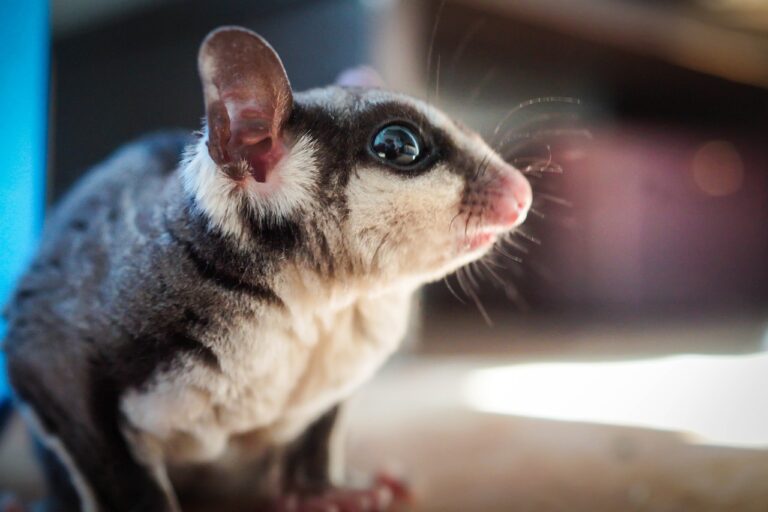Choosing an Exotic Pet Vet – 21 Tips on Finding the Right One
Owning an exotic pet is a unique and rewarding experience.
However, caring for them requires a specialized veterinarian. Choosing the right exotic pet vet is crucial to ensure the health and well-being of your beloved pet.
This article will guide you through the process of selecting the right exotic pet vet, covering everything from qualifications to location.
Key takeaways:
- Choose a vet who specializes in exotic pets to ensure the best possible care for your pet.
- Look for a vet who has experience treating your specific type of exotic pet.
- Research the vet’s credentials and qualifications to ensure they have the necessary knowledge and training.
- Visit the vet’s facility to ensure it is clean, well-equipped, and has a knowledgeable staff.
- Consider the vet’s communication style and availability to ensure you can easily communicate with them and get the care your pet needs.
- Prepare your exotic pet for vet visits by making sure they are comfortable and familiar with their carrier or transportation method.
- Take your exotic pet to the vet at least once a year for preventative care and check-ups.
- Have the contact information for an emergency exotic pet vet readily available in case of an emergency outside of regular business hours.
By following these tips and doing your research, you can find the right exotic pet vet for your beloved pet and ensure they receive the best possible care.
Understanding Exotic Pet Veterinary Care
The first step in choosing the right exotic pet vet is understanding the unique needs of these animals. Exotic pets require specialized care and treatment, and not all veterinarians are equipped to provide it. Here are some things to consider:
What Is an Exotic Pet?
An exotic pet is any animal that is not commonly kept as a domesticated pet.
Examples include birds, reptiles, amphibians, fish, and small mammals like ferrets and hedgehogs.
What Is Exotic Pet Veterinary Care?
Exotic pet veterinary care is a specialized field that focuses on the health and well-being of these unique animals.
Exotic pet vets are trained to treat a wide range of species and have the knowledge and experience necessary to provide the best possible care.
Why Is Exotic Pet Veterinary Care Important?
Exotic pets have unique health needs that are different from those of dogs and cats.
They require specialized care to ensure their health and well-being.
Regular check-ups and preventative care are crucial for maintaining their health and catching any potential problems early.
Things to Look for in an Exotic Pet Vet
When choosing an exotic pet vet, there are several things you should look for:
1. Qualifications
When selecting a vet for your exotic pet, one of the most important things to consider is their qualifications.
Exotic animal care is a specialized field, and it requires specific knowledge and training.
A qualified exotic pet vet should have a course of study that includes exotic animal care.
You can ask about their education and where they received their training.
Also, look for certifications or memberships in professional organizations, such as the Association of Avian Veterinarians or the Association of Reptilian and Amphibian Veterinarians.
2. Experience
Another important factor to consider when choosing an exotic pet vet is their experience.
You should look for a vet who has experience treating the specific type of exotic pet you own.
For instance, if you have a reptile, look for a vet who specializes in reptile care.
Ask about their experience with your particular pet and the number of cases they have handled.
3. Availability
Exotic pets often require more frequent check-ups and specialized care.
Therefore, you should ensure that the vet has availability for regular appointments and emergency visits.
Ask about their schedule and how they handle emergencies.
Also, check if the clinic has after-hours emergency contact.
4. Location
The location of the vet clinic is also an important factor to consider.
It should be easily accessible and convenient for regular visits and emergencies.
Consider the distance from your home or workplace and the traffic in the area.
5. Cleanliness
The clinic should be clean and well-maintained.
The presence of cleanliness and organization ensures that your pet is in a safe and healthy environment.
Check for the presence of dust, cobwebs, and pet waste.
6. Professionalism
The vet and staff should be professional, courteous, and knowledgeable.
They should have a caring and compassionate attitude towards your pet.
A good vet should be able to explain complex medical concepts in a way that you can understand.
7. Specializations
Some exotic pet vets specialize in certain areas such as avian or reptile medicine.
If your pet requires specialized care, look for a vet with the relevant expertise.
For instance, if you have a bird, look for a vet who has experience in avian medicine.
8. Equipment and Facilities
Ensure that the clinic is equipped with the necessary equipment and facilities to provide comprehensive care for your pet.
Exotic pets may require specialized equipment such as incubators or oxygen cages.
Also, check if the clinic has a well-stocked pharmacy or if they can order medications when needed.
9. Availability of Medication
Exotic pets may require specialized medication that may not be readily available at every clinic.
Check if the clinic has a well-stocked pharmacy or if they can order medications when needed.
10. Reviews and Recommendations
Check online reviews and ask for recommendations from other exotic pet owners to help gauge the quality of care provided by the vet.
A good vet should have a positive reputation and glowing recommendations.
11. Fees and Payment Options
Exotic pet care can be expensive.
Ensure that the clinic provides clear pricing and payment options that work for you and your budget.
Ask about the cost of services and if they offer payment plans or accept pet insurance.
12. Communication
The vet should be able to communicate clearly and effectively with you about your pet’s condition, treatment options, and prognosis.
They should be available to answer any questions you have and provide you with updates about your pet’s progress.
13. Availability of Ancillary Services
Some clinics offer additional services such as grooming, boarding, and training.
If you are interested in these services, look for a clinic that offers them.
14. Access to Referrals
Sometimes specialized care may be required that is outside the scope of the clinic.
Ensure that the vet has access to a network of trusted specialists and can provide referrals if necessary.
This ensures that your pet can receive the best possible care if a complex medical issue arises.
15. Emergency Care
Exotic pets can experience medical emergencies at any time.
Therefore, it is important to know if the clinic offers emergency care services.
Ask about their policies for after-hours emergencies and if they have any preferred emergency clinics in the area.
16. Bedside Manner
Your pet’s vet should have a gentle touch and bedside manner that puts you and your pet at ease.
They should be able to handle your pet without causing distress or injury.
If possible, arrange a meet and greet session before your first appointment to evaluate their bedside manner.
17. Scheduling and Appointment Flexibility
Exotic pet owners often have busy schedules, so it is important to find a vet with appointment scheduling flexibility.
Check if the clinic offers online scheduling, same-day appointments, or weekend appointments.
18. Preventive Care
A good exotic pet vet should emphasize preventive care.
They should provide information and advice on how to keep your pet healthy and free from disease.
They should recommend regular check-ups and preventative treatments such as vaccinations and parasite control.
19. Personal Connection
It is important to find a vet that you and your pet feel comfortable with.
They should show a genuine interest in your pet’s health and well-being and develop a personal connection with them.
20. Continuing Education
Exotic pet care is a rapidly evolving field, and it is important that your vet stays up-to-date with the latest developments.
Ask about their continuing education and how they keep their knowledge current.
21. Philosophy of Care
Every vet has their own philosophy of care.
It is important to find a vet whose philosophy aligns with your own.
For instance, if you prefer a more holistic approach to pet care, look for a vet who practices integrative medicine.
Questions to Ask When Choosing an Exotic Pet Vet
When choosing an exotic pet vet, it’s important to ask the right questions.
Here are some questions to consider:
- What species of exotic pets do you specialize in?
- What is your experience working with exotic pets?
- What are your hours of operation?
- What is your emergency protocol?
- Do you have experience with my specific type of exotic pet?
- What services do you offer?
- What is the cost of your services?
- Do you provide after-hours emergency care?
- Do you have an in-house laboratory?
Conclusion
Choosing the right exotic pet vet is crucial to ensuring the health and well-being of your beloved pet.
Look for a vet with the necessary qualifications, experience, and specialization in exotic pet care, among other important factors.
Communication skills and convenience are also important factors to consider. With these tips, you can find the right exotic pet vet for your furry or scaly friend.
FAQs
Do I need to take my exotic pet to a specialized vet or can I just take them to a regular vet?
It is highly recommended to take your exotic pet to a specialized vet.
Exotic pets have unique health needs that require specialized care and treatment.
Regular vets may not have the necessary knowledge or equipment to provide the best possible care.
How often should I take my exotic pet to the vet?
It is recommended to take your exotic pet to the vet at least once a year for a check-up and preventative care.
Some species may require more frequent visits, depending on their health needs.
What should I look for in a vet’s facility?
When choosing an exotic pet vet, look for a facility that is clean, well-equipped, and has the necessary equipment to treat your pet.
They should also have a friendly and knowledgeable staff who are passionate about providing the best possible care.
How can I prepare my exotic pet for a vet visit?
Before your visit, make sure your pet is comfortable and familiar with their carrier or transportation method.
Bring along any relevant medical records or information about your pet’s health history.
It’s also a good idea to bring along any food or treats that your pet enjoys to help keep them calm and comfortable during the visit.
What should I do if my exotic pet has an emergency outside of regular business hours?
Make sure you have the contact information for an emergency exotic pet vet on hand.
Many specialized vets offer after-hours emergency care, so make sure to have their contact information readily available in case of an emergency.
Peter Stones is the founder of Exotic Pets Place, the leading online resource for exotic pet care information.
With over 10 years of hands-on exotic pet ownership experience, he is deeply passionate about sharing his expertise to help others properly care for their unusual pets.
When he's not writing extensively researched articles or connecting with fellow exotic pet enthusiasts worldwide, you can find Peter at home tending to his own beloved menagerie of exotic animals.




![Exotic Pet Breeding Ethics A Comprehensive Guide [+ FAQs], two goats in a field](https://exoticpetsplace.com/wp-content/uploads/2023/06/Exotic-Pet-Breeding-Ethics-A-Comprehensive-Guide-FAQs-two-goats-in-a-field-768x740.jpg)

![The Pros and Cons of Owning an Exotic Pet in College [+ FAQs], a man with a backpack](https://exoticpetsplace.com/wp-content/uploads/2023/06/The-Pros-and-Cons-of-Owning-an-Exotic-Pet-in-College-FAQs-a-man-with-a-backpack-768x512.jpg)
![Exotic Pet Youtubers The Top 8 to Follow [+ Links], someone watching youtube on a tablet](https://exoticpetsplace.com/wp-content/uploads/2023/06/Exotic-Pet-Youtubers-The-Top-8-to-Follow-Links-someone-watching-youtube-on-a-tablet-768x554.jpg)